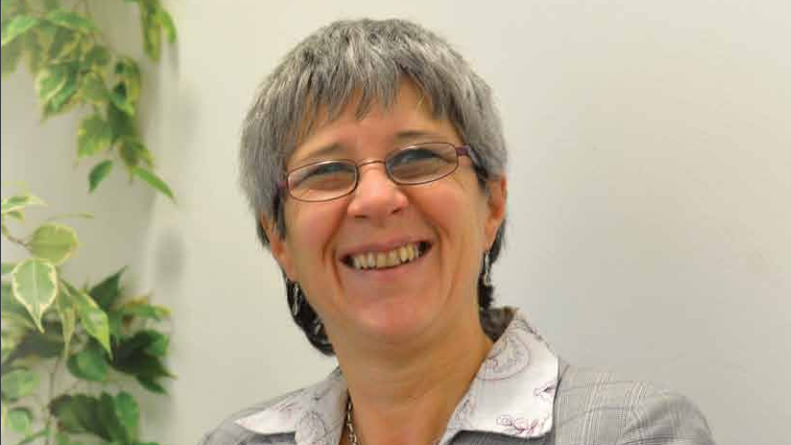High Rise: Val Jonas, CEO, Risk Decisions

Val Jonas, chief executive of Rick Decisions explains to us the reason ‘risk’ has unfairly been given a bad name, why common sense is a top ingredient for an effective project manager and why she enjoys nothing more than a good problem to solve.
What first prompted you to move into programme management?
Like many people, I landed in Risk Management by accident. I had various job offers and the job working with risk seemed far more exciting than anything else. However, I haven’t looked back – no two days are the same.
Being in risk has allowed me to gain insights into all aspects of business, so this opens up my perspective and helps me offer more value back to our customers. More or less everyone I’ve worked with in risk get hooked on it – partly because it’s interesting and also because you feel like you can really make a difference.
Take us through your career do date, who have you worked for?
Although I have technically only worked for one company (Risk Decisions) I have worked very closely with lots of very large companies, from The Post Office to National Grid, BP to BAE Systems, the UK MoD to Australian Defence.
What are you up to right now?
We’re collaborating with key thought leaders around the world to understand the true value of risk. Our white paper will look at how organisations can use risk as a positive force for good. It’s really important to be out there listening to what other people think – I learn something new every day.
It’s great fun building a risk community to share ideas. I plan to extend the work after publishing, talking to even more people from a variety of disciplines and sectors to understand their views on risk.
What makes your work fulfilling and fun?
It’s great to be able to help people shape the future of their organisation in such a positive way. The transformation can be amazing.
I enjoy working with visionary risk professionals who are finding innovative ways to tackle challenges and seize opportunities. And risk is still evolving as a discipline, so there are some fantastic risk communities out there, sharing ideas, not just the one we’re building at Risk Decisions.
What are your key strengths and how have you used these?
I love problem solving. I meet quite a lot of people who have had a painful experience with risk. I’m a good lateral thinker, so I can often see ways around problems and there’s nothing I like better than finding a way of turning what looks like a serious risk into an opportunity.
Of course, it often helps to come in as an outsider, as it can be easier to look at things from a fresh perspective.
For example, working with a defence project that was very late and over-budget, it became clear that key stakeholders just weren’t on the same page when it came to risk. I was able to bring together the needs of the end-user, procurement and contractor to facilitate discussions around risk and uncertainty to reach a resolution.
What aspects of the role pose the greatest challenge?
Risk has such bad PR – people perceive it as negative. I can’t really blame them – connotations of risk only being about insurance or health and safety is quite a big hurdle to get over. Getting people to take a fresh approach is a big challenge.
Change is most successful driven from the top down. In my experience, senior managers are receptive to taking a fresh look at risk, not seeing it merely as negative. Their problem is how to articulate that in their organisation.
That’s where I’ve been helping run risk masterclasses to develop a vision for risk that aligns with the organisation’s vision and values. Turning risk through 180 degrees, putting in place a positive vision for risk that can easily be communicated and embedded.
What training have you received and how has this helped you in your career?
I’ve had very little formal training in my career, I guess instead I have used role models.
At Risk Decisions, we changed our approach at leadership team meetings, casually introducing risk and opportunity into general discussion, especially when making decisions.
In bid- no-bid situations, working on delivery strategies, allocating budget and resources – we ask not ‘What could go wrong?’ but ‘How can we make things go right?’. Instead of saying ‘What’s the worst that could happen?’ we say ‘How could we turn this situation to our advantage?’
We capture our decisions in terms of the risks and opportunities. As our leadership group started to enjoy the new way of looking at things, it soon spread to conversations and the approach taken across the wider organisation.
What characteristics and skills do you think make a great programme manager?
It’s very important to be a good communicator and have good people skills. This applies equally when talking to the team or to managers.
I’m genuinely interested in what people are doing, the problems they’re having, how they’re trying to solve them. I encourage people to be adventurous – to seek opportunities – to make it safe to take risks in a managed way. It’s a route to innovation.
What are the biggest mistakes have you made and how did you correct them?
Probably the biggest mistake I’ve made over the years is focusing too much on risk gurus rather than the executive level and the strategic view of risk.
Because risk involves thinking about tricky stuff like probability and statistics, it can quickly get very technical. So people perceive it to be complicated and leave it to an ‘expert’.
But risk is just common sense, thinking logically instead of fearfully, lifting your eyes to look to the future, working out what you want and focusing on how you’re going to get there.
When risk gets hijacked by complication, there is no hope of providing decision-makers with clear options. Our latest move is to focus on making decision-making as easy as possible for senior managers.
Which project are you most proud of?
Providing risk management support to the Bovis Lendlease team building the London 2012 Athlete’s Village. I recall a visit on site in the early days when all you could see were a handful of tower block lift shafts dotted around a moonscape of mud.
The thrill I felt when attending the Olympic and Paralympic Games was enhanced by knowledge that I had played a part in making it happen.
What elements make your PM life easier (good comms channels, management, software etc)?
Good, simple IT that is focused on ease of use and outcomes rather than functionality. After discovering software design focused on User Experience (UX) I am now extremely intolerant of bad IT.
Agile development has revolutionised my approach to software delivery. It’s hard to imagine how we managed before.
Do you have a role model?
Isambard Kingdom Brunel – an amazing 19th Century engineer, he shaped the future of Britain’s landscape through innovative and ingenious designs many of which are still in use today.
As a child, I was in awe of the Royal Albert railway bridge across the river Tamar between Cornwall and Devon – the excitement of travelling by train to far-away places filled my thoughts with adventures.
We need more imaginative thinkers to solve 21st Century problems like Brunel did in his day. He revolutionized the world, connecting communities, creating opportunity. He shaped the future in his day, we need to do the same today.
Does being a good project manager help you in other aspects of your life?
I think that being a risk thinker has helped me as a parent. I believe that we protect our children far too much these days. It’s important that children take risks. As a parent, you need to provide a safe environment for them to learn from their mistakes and encouragement to seek opportunities.
How would you like your career to progress from here?
I would like to expand the work I’ve been doing with senior management teams developing their vision for risk. It is very rewarding to see the light bulb moment when C-Suite recognise the positive power of risk, to build reputation, gain competitive advantage or just find innovative ways to create value.
What’s your best advice for people hoping to move up the career ladder?
Understand how senior managers think. Help shape their thinking so they can shape a successful future. This will reflect well on you.




